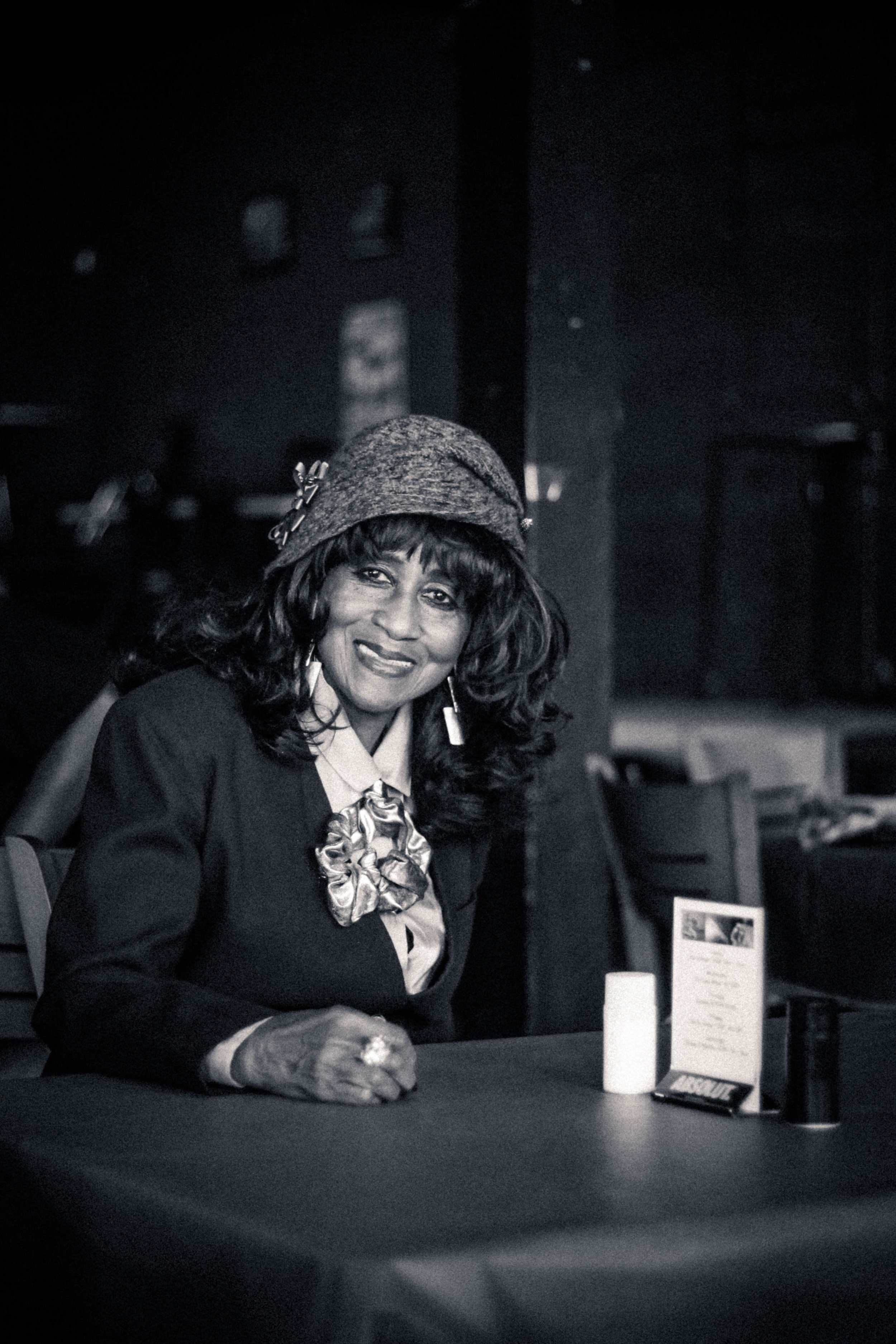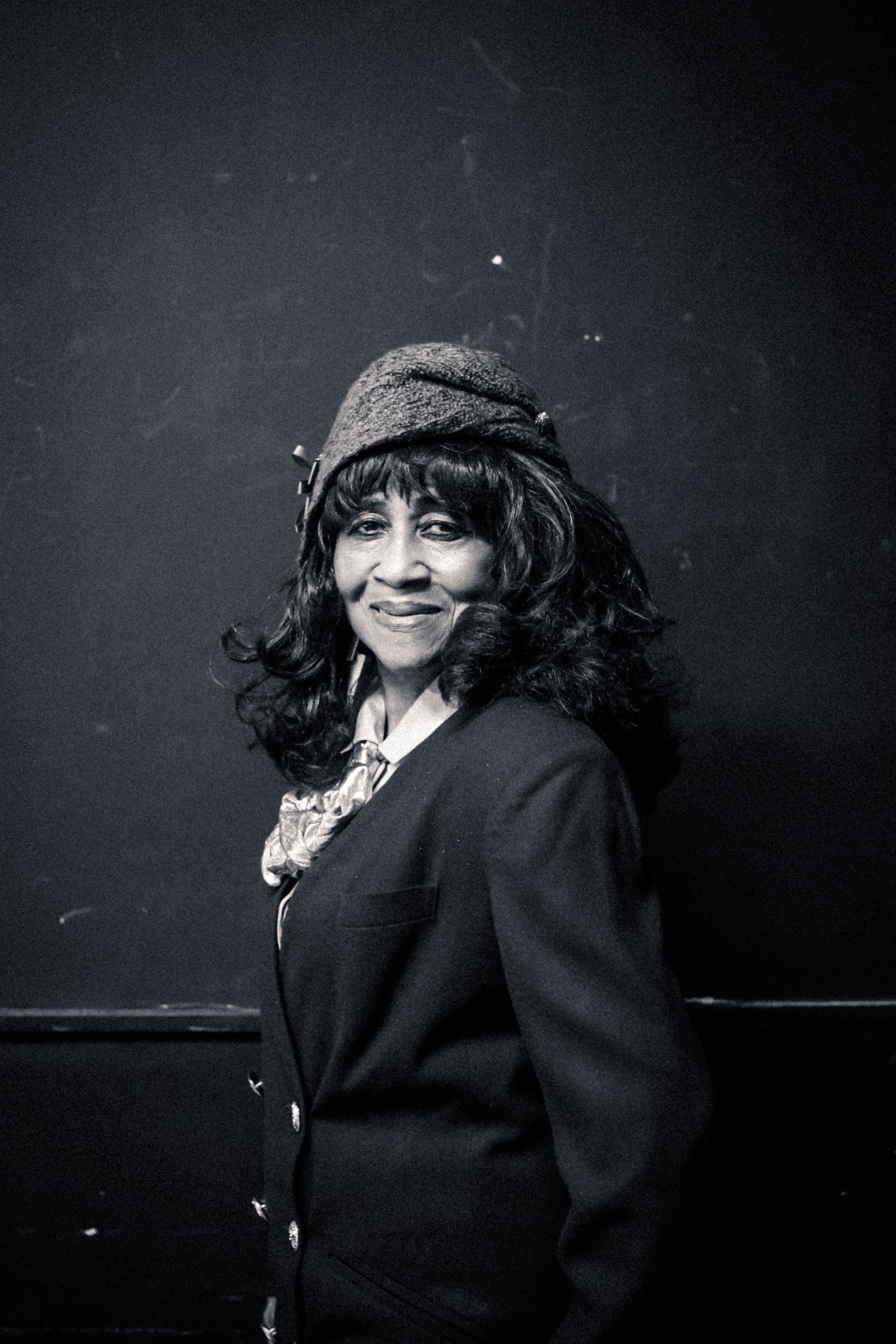Fabulous & Fierce
This piece was originally published in the December 2017 - March 2018 issue of our journal, Vol. 3, Issue 3: Grit.
It’s mid-afternoon on St. Patrick’s Day, and West Alley BBQ is a beehive. Residual customers grab a late lunch, employees make preparations in anticipation of a busy evening, and I sit to one side, shuffling through my bag to find a notepad. I am late for the interview, but I had told her I would be. When I walked in, the fellow said she was waiting for me, which I tried not to feel bad about, knowing neither he nor she was upset.
Miss Katie Brantley walks over, a portrait of cosmopolitan style, and greets me with an unmistakably Southern gentility. My fear of having caused frustration are allayed in the generosity of her hug. The graciousness of her voice puts me at ease; sometimes the interviewee takes care of the interviewer. I mention how much I’ve enjoyed getting to know her over the past two and a half years, and I awkwardly throw in an apology for how often I glance at the time. Sinking a little further into quicksand, I clarify that I do so not to find a way out but to see how much longer I can stay. She laughs and asks me not to print that part.
“There’s not enough paper to write my story,” she says with a laugh. Over the next hour I will discover how correct she is. During the interview, I will find myself thinking over and over that somebody needs to write a book on Miss Katie Brantley, and that to distill all these stories into a single useful and briefly digestible narrative will be quite a challenge indeed. I think ahead to my sitting at home or at the office writing the article. I anticipate the dilemma of wanting to use words like “riveted” without sounding hyperbolic. It will be difficult to capture her energy without the risk of sounding so.
We proceed in spite of my quiet anxieties, and the interview settles into its rhythm. We discuss her family and early life. Miss Katie was born in Jackson, and I’m interested to hear her talk about how this city has changed over time.
She attended elementary school near Mother Liberty Church. Her father worked in the saw mill, and her mother took a bus daily to work in Milan. Her grandfather worked in the oil mill in Riverside, then known as Bolivar Street. I’m intrigued to learn that she didn’t have indoor plumbing, and we both laugh when she describes running water and a flushing toilet as entertainment for the kids. She entered Merry High School in 1949, where she was a majorette.
She begins telling me about participating in a fashion show during her senior year, and I don’t yet realize what a pivotal point this minor-sounding event will be. Also participating was Marva Louis, then wife of boxing legend Joe Louis.
“She was a beautiful lady,” Miss Katie tells me. “When I saw her swirl around and doing her poses, something just got into me.”
With this bit of experience behind her and with the encouragement of a friend, young Katie felt confident about competing in the Miss West Tennessee Beauty Pageant. She was excited to learn that the prize for winning the competition was a college scholarship but less thrilled to learn that the pageant was two days away.
“I didn’t know what I was going to wear,” she tells me. “I didn’t have a long evening dress. But do you know what? If you put your mind to it, somebody will help you.”
She’s already a good way into the story before I begin to realize what a beautiful example of community support she’s offering me. One lady fixed her hair, another provided jewelry, and yet another a purse.
There was also the problem of shoes. The necessary ones were expensive, and I am humbled when she tells me about the $4.95 price tag. Her neighbor gave her five dollars to buy them, but when she got to Albert’s shoe store, she saw that she was mistaken on the price, and five dollars wouldn’t be enough. They could see her disappointment and asked her what she needed the shoes for, so she told them about the pageant and how she might get the chance to go to college.
The price for those shoes was reduced to five dollars that day.
Katie couldn’t wait to get home. When she arrived, her grandmother frantically asked, “What is that?!” Her grandfather was similarly concerned. If she got the dress dirty, who would pay for it? What if she lost the jewelry? Katie swore she would take great care of all the borrowed items. Her mother offered support: “These people sent this. Let’s give her a chance.”
I’m humbled again to learn that Katie’s family didn’t own a car. Consider the professional implications of this on the adults in the household when it means she will have to get ready and then walk to the pageant, hair up and in high heels, for miles. Katie didn’t mind. She told everyone along the way about the pageant. “If you’re in it, you’re gonna win it!” she recalls hearing, adding a spritzy pep to her eager walk.
She describes being overwhelmed and recalling only flashes of memory during the event. After each round, someone would have to tell her, “You’re still in it!” Katie couldn’t even remember her number as the competition became slimmer and the tension grew thicker. They called number seven as the winner, and it was only when others grabbed and shook her with cries of “It’s you!” did it begin to take hold.
Miss Katie is beaming from across the table by the time she shares her memory of the walk home. She walked for miles with that crown atop her head, catching all the folks up along the way. She was greeted at her door by her family, tears in their eyes. I find myself, decades later, proud of her on their behalf. She must have looked and felt so beautiful. And what’s more, this beauty queen was going to college.
Young Katie really wanted to go off to school in Nashville, but her family wanted her to stay close by. She respected her family’s wishes and enrolled in Lane College. She mentions how she had never visited Lane and describes her arrival there as “like entering another city.”
“When I got on that campus, I didn’t know a soul!” she says. “It was all new people.”
It wasn’t long before the community took notice. She performed during football games as a majorette and was crowned Miss Dragonette her first year. She attended classes in the summer and ultimately finished in three years.
As I inquire about her professional beginnings, she tells me how she began as a home economics teacher in Waverly, Tennessee, and how from this vantage, she observed the integration of schools. She fondly describes the community of Waverly as a “family town.”
“Those people were nice to everybody,” she says. “It was like a family.”
She tells me how she then taught for two years in Brownsville and has me very nearly belly laughing when describing an early conversation with the principal:
“He knew I was a young wife, and he said, ‘If you get pregnant, you don’t stay here! At three months, you’re supposed to let me know.’ I told him I would, but that’s where I told a lie because I didn’t let him know. But being a home ec. teacher, I knew how to make my dresses bigger, and I was still modeling. Big tent dresses. . . . No one had seen anything like that. And I was just stepping! Every day I had on something new. And I just loved those people.”
At this point, we’re only thirty minutes into our conversation. In the hour following, we discuss everything from her work with the State of Tennessee to her service as a Madison County Commissioner, where she continues to play a pivotal role in community life to this day. The spectre of racial inequality hovers over the conversation, though she seldom addresses it explicitly and never with anger or bitterness. She is never less than perfectly graceful, even when a note of melancholy appears in her eyes or her voice. I am moved by her courage and humbled by her strength, and I emerge from the interview with newfound oceans of respect for a lady I already held in the highest regard. From this new horizon I am more hopeful than ever for a future characterized by dialogue.
Eight months after that conversation, I’m still wondering how I could possibly capture the breadth, the energy, the charm, and the life of Miss Katie Brantley in a brief article. Our Jackson Home could devote an entire journal to her unpacking some of the unique challenges she faced as an African-American female trying to build a career and raise a family in what was then the modern South. Could I presume to present the enormity of that history with the respect and compassion it deserves with so few column inches? Should I turn the beauty pageant into a metaphor for community and try to parallel Jackson then with Jackson now? None of these or other solutions seem very satisfying when dealing with such a fascinating subject.
Even now, I wrestle with the temptation to make this story essentially an apology for my own inability to cogently summarize Miss Katie Brantley. Instead, I will use it to offer a nickel’s worth of free advice to the reader: Sit down with this fascinating lady and get to know her. Stop by West Alley BBQ and ask for her. If she isn’t there, she will be soon. Befriend people outside your own frame of experience, both in Jackson and beyond. In this information age, I sometimes worry that we (at least I) may be losing a touch of the humility necessary to develop true wisdom. I’m afraid we may flirt a bit too closely with the temptation to trust Wikipedia or Facebook or the corporate news to be our exclusive sources, neglecting the priceless resources we have in folks like Miss Katie. It’s a bit like using the microwave when we’d all agree the slow cooker is much more satisfying. These neighbors are walking history lessons. They walked these same streets and helped create the history we have inherited. They are a treasure to be cherished while we have them.
Katie Brantley has lived through an incredible period in the history and development of our community, and she is still here, energetic as ever, to lucidly bring these episodes to life, give color and flesh to aged newsprint. Our city, our country, and indeed our world is infinitely richer because we have people like her.
Matt Altobell is the Executive Director of Jackson Downtown Development Corporation. A native of Columbia, Tennessee, Matt came to Jackson in the fall of 2003 to attend Lambuth University, where he majored in Communications with an emphasis in Video and Film Studies. He has chosen to make Jackson his home since college, save for a brief prodigal return to the rolling hills and fabled plateau of his youth. He is a classic film and progressive rock fanatic.
Originally from Murfreesboro, Tennessee, photographer Katie Howerton moved to Jackson in 2011 to study Graphic Design and Drawing at Union University. She discovered Our Jackson Home in January 2015 and used it as a guinea pig for her senior design project, creating the first issue of Our Jackson Home: The Magazine. After graduating she was given leadership over Our Jackson Home at theCO, where she now runs the blog, designs the magazine, and coordinates events. She and her husband Jordan live in Midtown and are active members of City Fellowship Baptist Church.




































